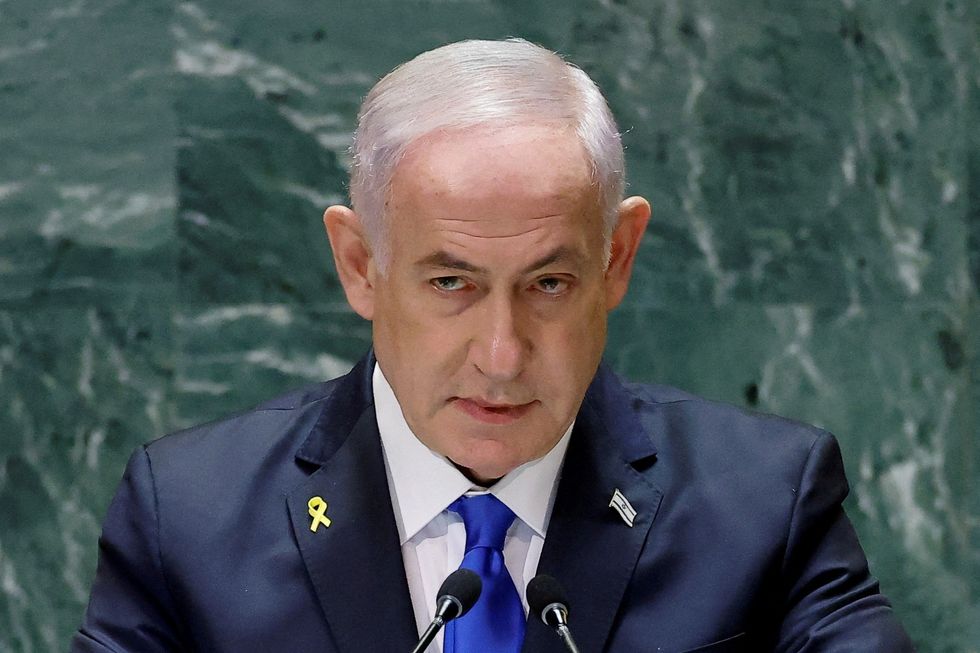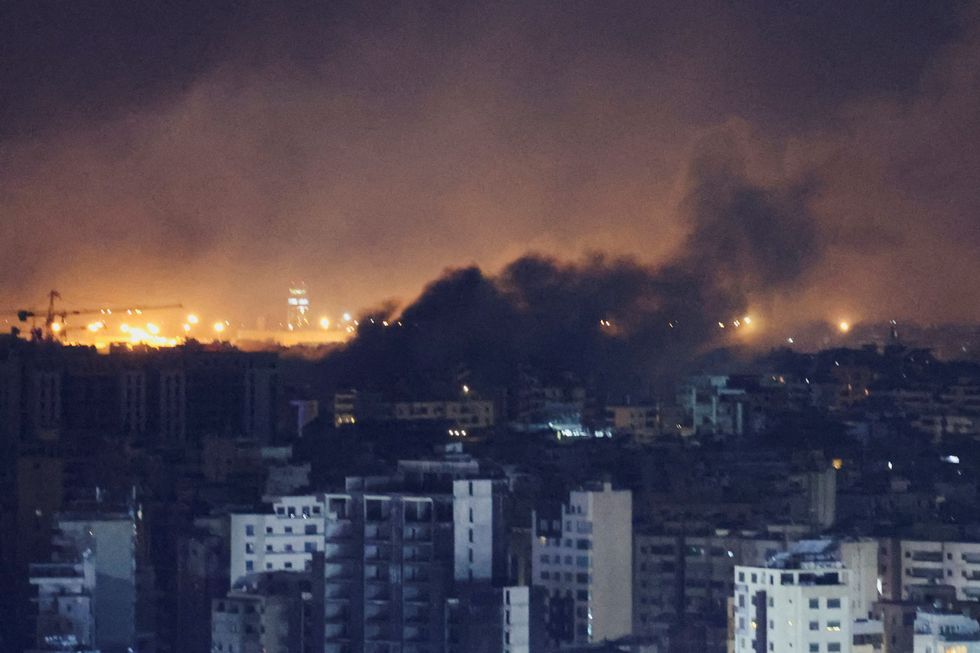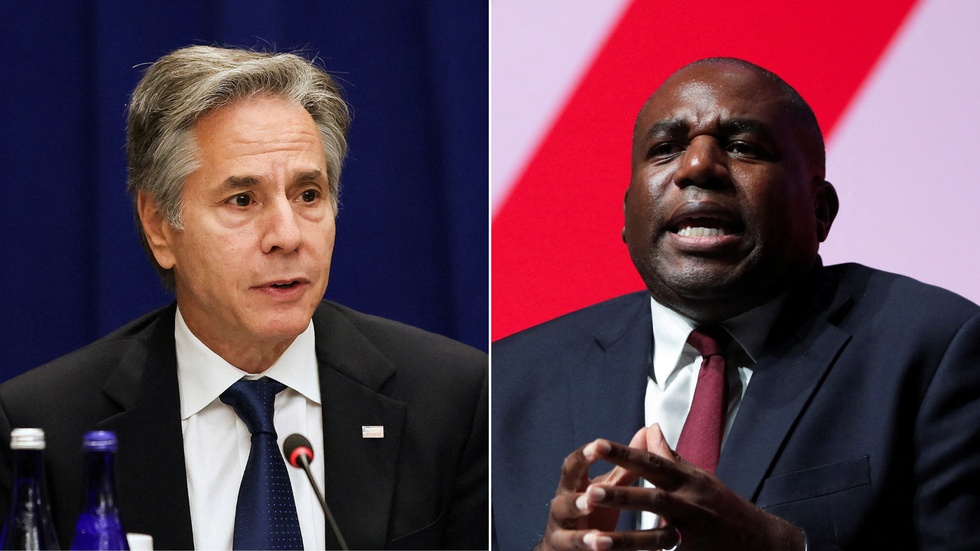Israel launches ground invasion in southern Lebanon as they unleash rain of fire on Hezbollah
A statement from the IDF confirmed it had started "limited, localised, and targeted ground raids based on precise intelligence against Hezbollah terrorist targets"
Operation 'Northern Arrows' comes just days after after the assassination of Hezbollah's leader Hassan Nasrallah
Don't Miss
Most Read
Trending on GB News
Israel's armed forces, the IDF, have confirmed that they have begun a "ground operation" in the south of Lebanon.
Just days after the assassination of militant group Hezbollah's leader Hassan Nasrallah and a spate of other senior leaders in the organisation, Israeli troops crossed their northern border.
A statement from the IDF confirmed it had started "limited, localised, and targeted ground raids based on precise intelligence against Hezbollah terrorist targets and infrastructure in southern Lebanon" - in the name of protecting Israelis in the north of the country, thousands of whom have been displaced from their homes for some time.
As Israeli troops poured in, Lebanese forces pulled back from positions along the border - avoiding direct confrontation and the diplomatic headache for the UK which would follow, and letting Israel get to work on Hezbollah.

Benjamin Netanyahu's forces started their "ground operation" last night
REUTERS
The statement read: "In accordance with the decision of the political echelon, a few hours ago, the IDF began limited, localised, and targeted ground raids based on precise intelligence against Hezbollah terrorist targets and infrastructure in southern Lebanon.
"These targets are located in villages close to the border and pose an immediate threat to Israeli communities in northern Israel.
"The IDF is operating according to a methodical plan set out by the General Staff and the Northern Command which IDF soldiers have trained and prepared for in recent months.
"The Israeli Air Force and IDF Artillery are supporting the ground forces with precise strikes on military targets in the area. These operations were approved and carried out in accordance with the decision of the political echelon.
LATEST AS ISRAEL HITS BACK:

The start of the operation came mere minutes after another series of air strikes on Lebanese capital Beirut
REUTERS
"Operation 'Northern Arrows' will continue according to the situational assessment and in parallel to combat in Gaza and in other areas.
"The IDF is continuing to operate to achieve the goals of the war and is doing everything necessary to defend the citizens of Israel and return the citizens of northern Israel to their homes."
The start of the operation came mere minutes after another series of air strikes on the Lebanese capital Beirut, targeting Hezbollah members in the city's Dahieh suburb.
And that followed Israeli PM Benjamin Netanyahu's video address to Iranian citizens, in which he warned that there was nowhere in the Middle East beyond Israel's reach.

UK Foreign Secretary David Lammy and US secretary of state Antony Blinken reiterated calls for a ceasefire overnight
REUTERS
He said the Iranian government was bringing Iranians "closer to the abyss" - and vowed Iran and Israel would be at peace when Iran is "finally free".
An Israeli strike in Lebanon early on Tuesday targeted Mounir Maqdah, the commander of the Lebanese branch of the Palestinian Fatah movement's military wing, the Al-Aqsa Martyrs Brigade - once led by Yasser Arafat.
As the sun rose, Hezbollah hit back - with the group saying it targeted Israeli troops in a "rocket barrage" just after 6am UK time in Israel's northern border town of Metula.
Overnight, UK Foreign Secretary David Lammy and US Secretary of State Antony Blinken reiterated calls for a ceasefire, with the pair having "discussed the need to de-escalate tensions in the Middle East and the importance of ongoing diplomatic efforts to establish stability", according to US State Department spokesman Matthew Miller.








